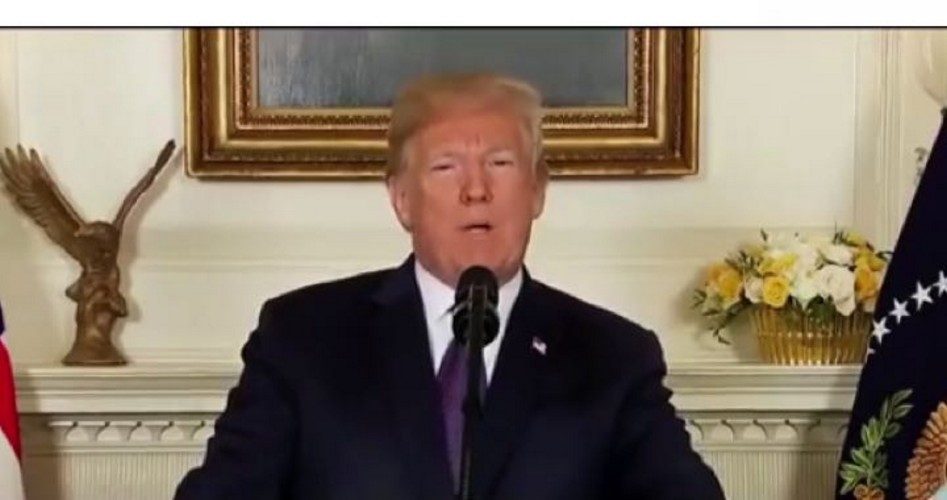
President Donald Trump apparently hopes that he can get help from Andres Manuel López Obrador, the president-elect of Mexico, on the issue of immigration. Despite vowing during his campaign to “put [Trump] in his place,” López Obrador has indicated an openness to helping reduce migration of Mexican citizens into the United States.
As such, Trump is dispatching to Mexico City key officials of his administration, in hopes of improving U.S.-Mexico relations. The high-ranking delegation will be led by Secretary of State Mike Pompeo. Others in the group headed south are Homeland Security Secretary Kirstjen Nielsen, Treasury Secretary Steven Mnuchin, and even Trump’s son-in-law, Jared Kushner. A senior presidential adviser, Kushner also is in charge of the Mexico portfolio.
An anonymous U.S. government official said that the high level of officials that Trump is sending to Mexico indicates a “whole-of-government approach and underscores the importance of our relationship.”
Lopez Obrador, a socialist, won the presidential race in a landslide on July 1. He will not take office, however, until December 1.
Relations between Mexico and the United States have been strained since Trump took office in January of last year, vowing to build a wall on the southern border and insisting that Mexico will pay for the wall. Outgoing President Enrique Peña Nieto has been quite cool to Trump, rejecting the demand that his government pay for a wall on the border. Despite the anger caused by Trump’s demands that Mexico pay for a border wall, there is hope that Mexico might be ready to help curtail emigration from south of the border into the United States. Nieto even cancelled a visit to the United States in February after a contentious phone call in which Trump reiterated his demand that Mexico pay for the proposed wall. But Nieto is expected to also meet with Trump’s team.
Despite the frosty relations between the United States and Mexico, Lopez Obrador said little about Trump during the campaign. His victory is being credited more to promises that he will clean up corruption within the government and that he will reduce the high murder rates, attributed to the drug cartels.
Evidently sensing an opening with a new president in Mexico, Trump first tweeted, then telephoned congratulations to Lopez Obrador after his huge win. “There is much to be done that will benefit both the United States and Mexico!” Shortly after the election, the two presidents spoke for half an hour on the phone. The call was described by both sides as positive.
Trump has even jokingly referred to Mexico’s new chief executive as “Juan Trump.”
How could Trump and a leftist like Lopez Obrador actually get along?
Perhaps the fact that both men won presidential elections as “outsiders” may have something to do with it, at least on a personal level. And castigating the United States can only carry so much clout in Mexico, as Mexican citizens are beginning to realize that most of Mexico’s problems are not caused by the United States, but are home-grown.
On Trump’s part, if he could get the Mexican government to restrain the migration of the Mexican population, then that would help tremendously in controlling the problem of illegal immigration. Recent Mexican governments, no doubt hoping to get rid of some of its poorer citizens, have even provided maps and other aides for emigrants seeking a new life in the United States, whether they get there legally or illegally. The U.S.-Mexico border is not only the entry point of illegal immigration from Mexico itself [it is estimated that as much as one-fifth of the Mexican population has emigrated north to the United States], but emigrants from countries in Central America, especially Honduras, El Salvador, and Guatemala, cross into the United States at the U.S.-Mexico border, as well.
Whether this thawing of relations can persist in the long-term is questionable. Michael Shifter, president of Inter-American Dialogue, noted, “President Trump has been admirably restrained” about the election of Lopez Obrador, “but restraint is not his strength. The goodwill that today should be celebrated might be short-lived.”
The truth is that relations between the United States and Mexico have been rocky since Mexico won its independence from the Spanish Empire in 1821, for several reasons. For one thing, the two countries fought a war from 1846-1848, after the United States agreed to annex the Republic of Texas in 1845 (after Texas had been an independent republic for almost a decade, having won its independence from Mexico in 1836). Few Americans today give this war much thought, but that is not the case south of the Rio Grande River, where it is a source of continuing resentment for many Mexican citizens.
Mexico has gone through a series of governments, mostly bad ones, since that time. A staple of political campaigns in Mexico has been to rail against the powerful neighbor to the north. U.S. interventions into Mexico’s internal politics, even with military incursions, by presidents such as Woodrow Wilson, have contributed to the frayed relationship.
Still, for cultural reasons, a U.S. president such as Trump may be — oddly enough — the personality type that can improve relations.



